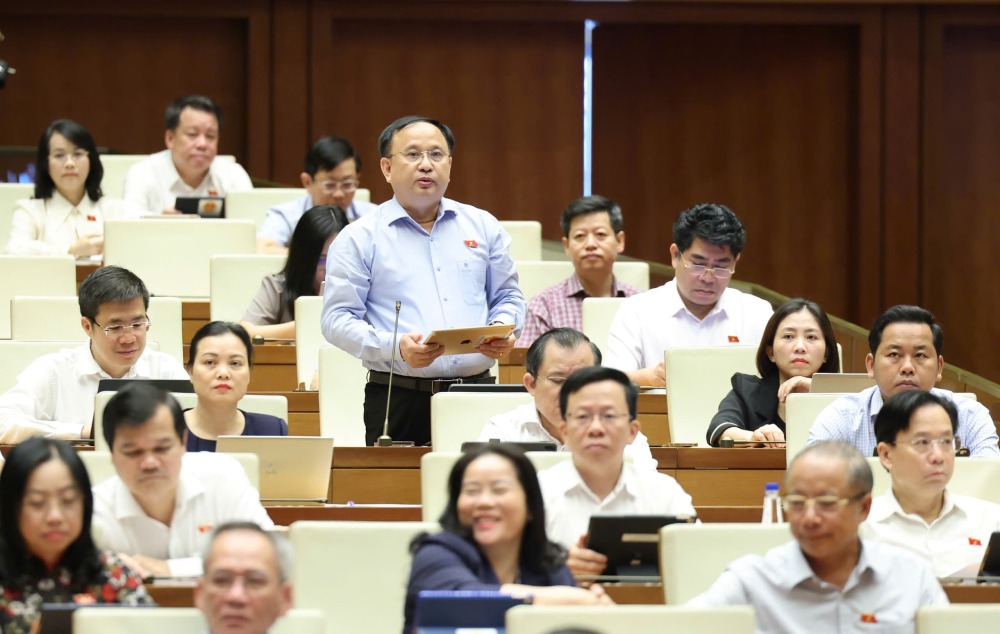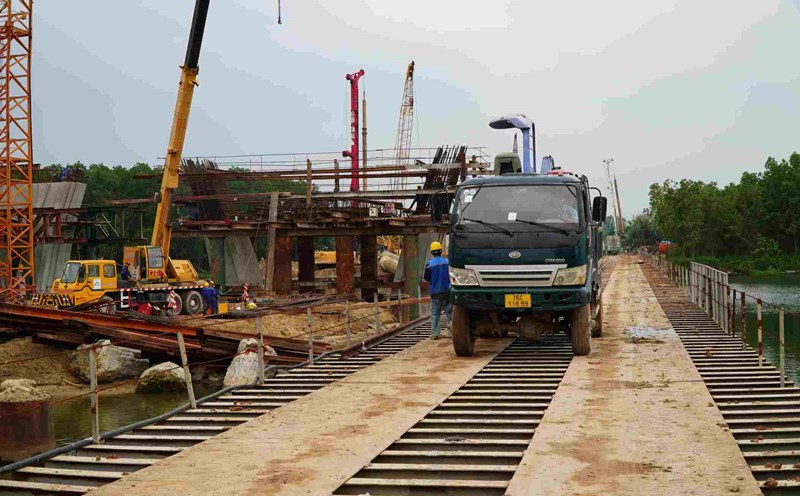On the morning of June 18, the National Assembly discussed socio-economic development plans, the state budget and many other important contents.
Speaking before the discussion, Vice Chairman of the National Assembly Nguyen Duc Hai said that in this morning's discussion session, the Minister of Finance and the Minister of Health will answer a number of issues that many delegates are interested in.
In particular, the Minister of Health will answer questions about improving the quality of medical examination and treatment, paying attention to investing in grassroots health care, reducing overload in central hospitals, implementing autonomy mechanisms for the health sector, legal corridors and policies to protect health care workers against acts of violence, policies to improve the lives of health care workers.
Meanwhile, the Minister of Finance will answer about the slow disbursement of public investment capital, unreasonable capital allocation, spreading, ineffective projects, preventing negativity in public investment, public procurement, etc.
At the same time, he answered questions about the arrangement and handling of real estate and public assets of ministries, localities, and state-owned enterprises; the completion of mechanisms for mobilizing, using, and controlling non-budgetary capital, unblocking social resources, and developing long-term capital markets.
Encourage insurance, pension funds, and long-term investment funds for development investment projects; continue to reform, arrange sources to increase salaries for officials and civil servants and amend regulations on personal income tax and family deduction levels.
The Vice Chairman of the National Assembly also asked the Minister to inform about the difficulties, problems and concerns when implementing the regulation on eliminating contract tax from January 1, 2026 for business households and individual businesses.
"There is a lot of content about finance and budget. I suggest that the Minister of Finance will focus on answering basic issues and the Minister will have one more session to answer questions" - Vice Chairman of the National Assembly said.

Speaking at the discussion session, delegate Tran Duc Thuan (Nghe An delegation) said that currently, many remote communes across the country, including Nghe An, do not have solid traffic routes. Many inter-commune and inter-village roads have seriously degraded.
Schools and medical facilities in many places are degraded; information infrastructure is still limited; some places have a shortage of local teachers; district hospitals lack specialized doctors, equipment... affecting the quality of teaching, medical examination and treatment, and health care for people.
To contribute to solving these difficulties, the delegate proposed organizing an objective and comprehensive assessment of the achieved results, especially the limitations and obstacles in implementing the 3 national target programs to have timely solutions to continue to effectively implement in the coming time.
Delegates also prioritized investment in essential infrastructure for particularly disadvantaged communes and border communes; focused on resolving infrastructure investment projects that are still pending and prolonged, affecting people's lives.
The delegate also proposed to study and issue specific and outstanding mechanisms and policies for people living in mountainous areas, remote areas, and areas with special difficulties across the country.











